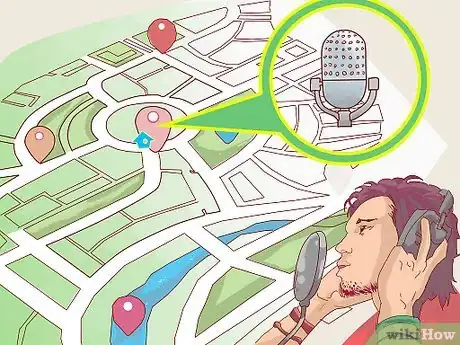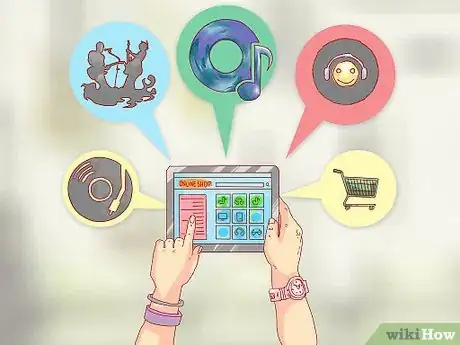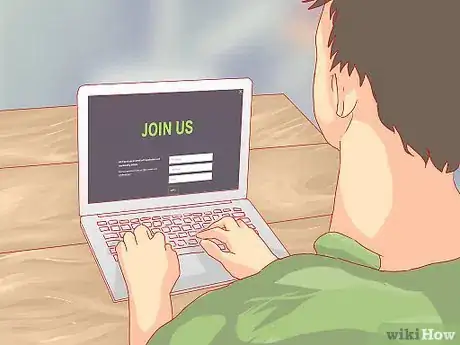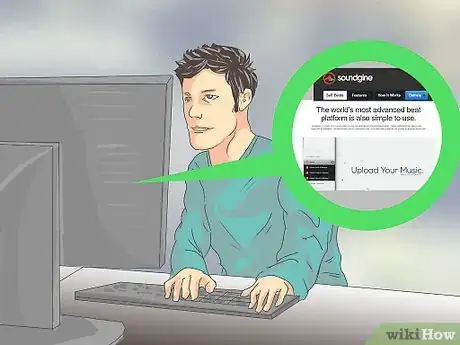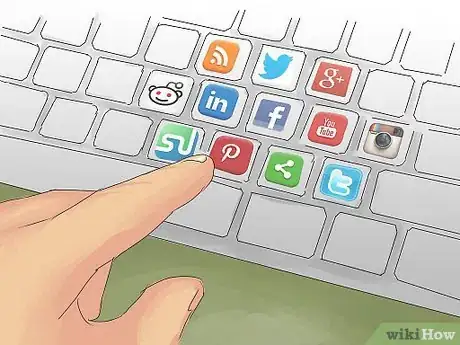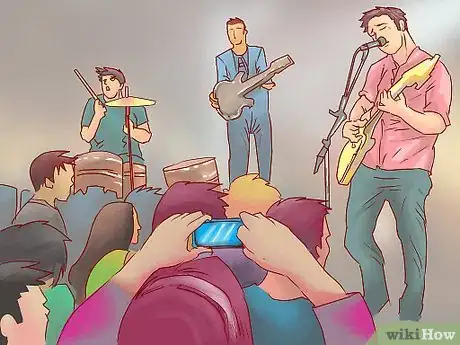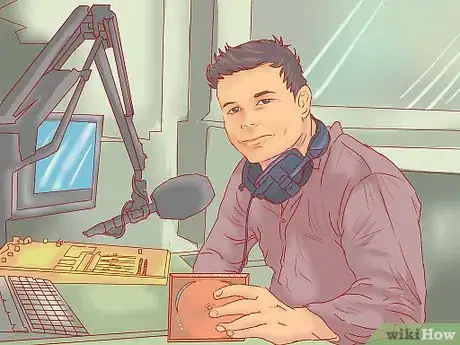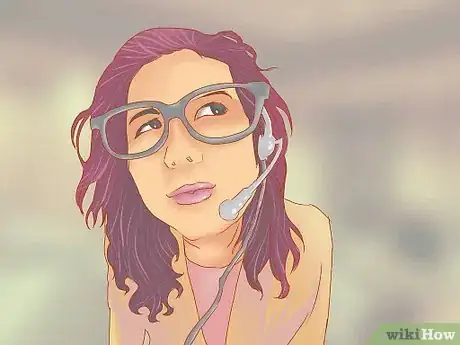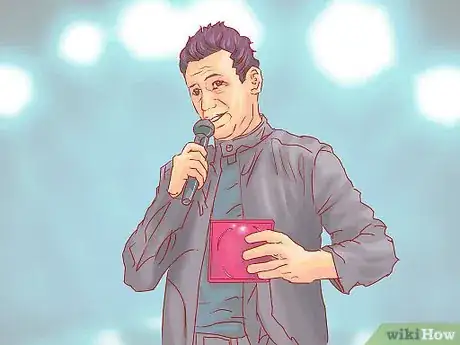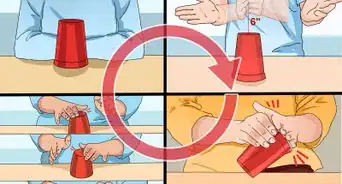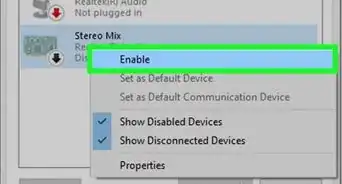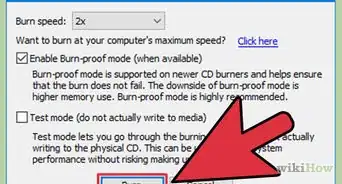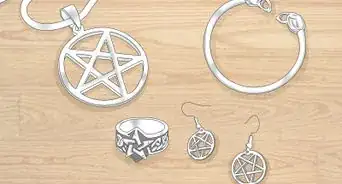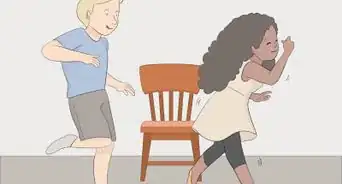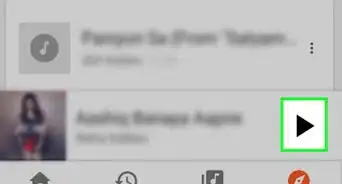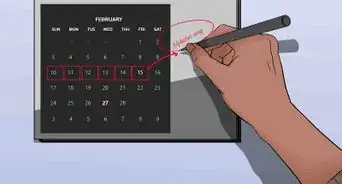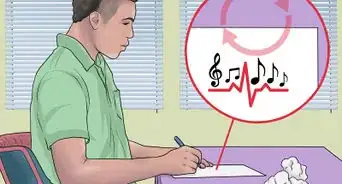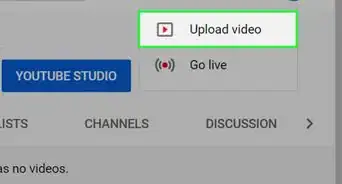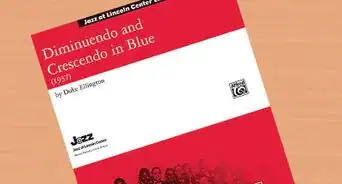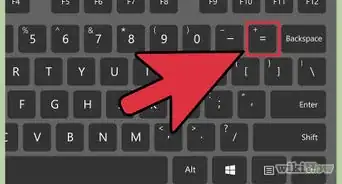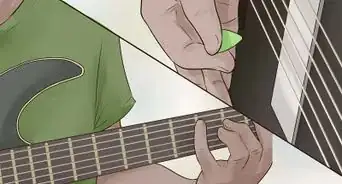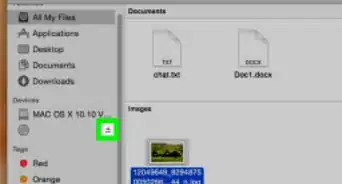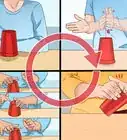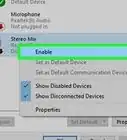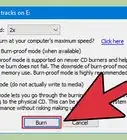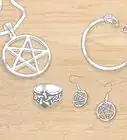This article was co-authored by Nicolas Adams. Nicolas Adams is a 5th generation musician of Serbian Gypsy descent and the lead guitarist of the band Gypsy Tribe. Based in the San Francisco Bay Area, Nicolas specializes in Rumba Flamenco and Gypsy jazz and playing the guitar, Bouzouki, Balalaika, and piano.
There are 8 references cited in this article, which can be found at the bottom of the page.
wikiHow marks an article as reader-approved once it receives enough positive feedback. In this case, 91% of readers who voted found the article helpful, earning it our reader-approved status.
This article has been viewed 117,458 times.
The music industry is constantly changing thanks to the internet, the global connectivity created by social media, sites like YouTube, and the digitization of music. Moreover, with the advent of internet and satellite radio, people are no longer limited to the geographical boundaries of their local radio frequencies, so getting radio play on a major station isn't the coveted achievement it once was. Gone are the days of people making demos and relentlessly sending them to every record label and radio station in the business, because today, people can use internet resources, music sites, and local recording studios to produce, sell, and promote their own music.
Steps
Selling Your Own Music
-
1Record a few songs. Once you have perfected a couple songs, it’s time to lay down the tracks. After all, you can't sell your music if you don’t have anything recorded, but thanks to advancing technologies, most small towns these days have their own recording studios where musicians can go to record a few tracks or entire albums at relatively low prices.
- Check online to see if there are any local recording studios in your town, as the added quality of a semi-professional recording could make all the difference when you're trying to get people to pay for your music.
- Simply search for “recording studios” and the name of the city where you live, and all the nearest studios will be listed.
-
2Have your music available in multiple formats. These days, music is sold through different avenues, and each of these requires a different format. For instance, you can sell physical copies of your music on CDs or vinyl at concerts, but you'll need digital versions if you want to sell your music online and through electronic stores.[1]
- When you go in to record your tracks, get them pressed onto CDs and onto vinyl if possible, and keep digital versions of everything as well.
Advertisement -
3Sell your music through digital apps and music stores. There are a multitude of digital music stores out there, and many of them have their own music apps that are used by different mobile devices—such as iTunes for Apple, Google Play for Android devices, Band Camp, and Amazon Music. As an artist, you can sell your music directly through these media.[2]
- Some of these digital stores make it difficult for individuals to sell their music, and prefer that musicians use third-party networks.
- To sell music through iTunes, for instance, you need an Apple ID, a Universal Product Code, an International Standard Recording Code, and a U.S. tax ID.[3]
-
4Join a digital distribution network. These types of networks specialize in partnering with digital music stores and streaming services, and when you sell your music to these affiliates, you're paying for them to get your music sold through the most popular digital avenues. Moreover, these sites will be able to deal with all the red tape involved in selling your music digitally, and will format your music to the various specifications of different stores.[4] Some of the more popular digital distribution networks include:
-
5Sell beats and instrumental music online. Just as digital music stores are places where you can sell your own music to people around the world, so too are there digital stores dedicated to selling beats, samples, and instrumental music. Like the digital stores and distribution networks, some of these sites work on a subscription basis while others are pay-per-tune. The most popular music production sales sites include:
-
6Sell physical copies of your music online. You can sell copies of your records to people the same way people buy clothes online. When somebody purchases your album, they also pay shipping and taxes, and then you mail a physical copy of your record to their address. You can do this through your own website if you have one, your Facebook page, or Amazon.[5]
- CDBaby is another option. They make their money by taking a cut of every sale, but they can also convert digital copies of your music into CD formats.
-
7Sell your music in person. There are many venues where independent artists can sell their own music, and this includes local shows and concerts, coffee shops, art galleries, and markets. Some places, like coffee shops, may ask for a small fee in return for managing your display, while farmer’s markets might require you to pay for a booth.
- If you're looking for other venues through which to sell your music, ask around in the local arts and music scene to find businesses that are open to helping out local artists, and approach those businesses and ask if you can set up a display to sell records.
Promoting Your Music
-
1Promote your music through social media. When you want to make a living as a musician, you must reach as many people as possible an promote yourself all the time, because the more fans you have, the more people there are to buy your music. These days, one of the best ways to reach new fans is through social media and having friends, family, and fans share your music with others.[6]
- Along with having accounts with all the popular social media sites (Facebook, Twitter, YouTube, and Myspace, to name a few), you should also update them regularly and share your songs, performances, and videos there.
-
2Perform at every opportunity. While social media and digital marketing are important, you still have to get out there and perform all the time. Think outside the box when you're looking for gigs, and try to book yourself at events like weddings, parties, and charity events, along with the traditional concerts, shows, and club performances.
- By performing in front of live audiences, you will build a stronger fan following, develop a solid local market, and each show will bring more exposure and new fans.[7]
-
3Send your music to radio stations. This is a more traditional way of getting your music out there, and it is still important for artists to get airplay. When you send your demo, be sure to address a specific DJ, and try to target a person that tends to play music in your genre. Today, however, musicians aren't limited to local radio stations, so also send a few of your tracks to:[8]
- College and university stations
- Web radio stations
- Satellite radio stations
- Music bloggers
-
4Get an agent. Agents are great because it’s their job to help make you more popular and get you paying gigs. Not only that, but if you're looking to get signed, agents are a huge asset because they have connections within the industry.
-
5Send your music to a few record labels. This is only necessary if you want to sign a record deal with an actual label, which isn't strictly necessary these days. But a record label will help take care of promoting your music and selling records, which will take some of the pressure off you.
- If you do want to get signed with an existing label, send copies of your best work to producers and executives at the labels you want to work with.[11]
- Don’t forget about digital record labels and netlabels such as 8Bitpeoples and Monstercat.
Expert Q&A
Did you know you can get expert answers for this article?
Unlock expert answers by supporting wikiHow
-
QuestionHow do you get paid for your music?
 Nicolas AdamsNicolas Adams is a 5th generation musician of Serbian Gypsy descent and the lead guitarist of the band Gypsy Tribe. Based in the San Francisco Bay Area, Nicolas specializes in Rumba Flamenco and Gypsy jazz and playing the guitar, Bouzouki, Balalaika, and piano.
Nicolas AdamsNicolas Adams is a 5th generation musician of Serbian Gypsy descent and the lead guitarist of the band Gypsy Tribe. Based in the San Francisco Bay Area, Nicolas specializes in Rumba Flamenco and Gypsy jazz and playing the guitar, Bouzouki, Balalaika, and piano.
Professional Guitarist
-
QuestionWhat's the easiest way to get on every platform at once?
 Nicolas AdamsNicolas Adams is a 5th generation musician of Serbian Gypsy descent and the lead guitarist of the band Gypsy Tribe. Based in the San Francisco Bay Area, Nicolas specializes in Rumba Flamenco and Gypsy jazz and playing the guitar, Bouzouki, Balalaika, and piano.
Nicolas AdamsNicolas Adams is a 5th generation musician of Serbian Gypsy descent and the lead guitarist of the band Gypsy Tribe. Based in the San Francisco Bay Area, Nicolas specializes in Rumba Flamenco and Gypsy jazz and playing the guitar, Bouzouki, Balalaika, and piano.
Professional Guitarist
-
QuestionHow can I promote my music in 2020?
 Nicolas AdamsNicolas Adams is a 5th generation musician of Serbian Gypsy descent and the lead guitarist of the band Gypsy Tribe. Based in the San Francisco Bay Area, Nicolas specializes in Rumba Flamenco and Gypsy jazz and playing the guitar, Bouzouki, Balalaika, and piano.
Nicolas AdamsNicolas Adams is a 5th generation musician of Serbian Gypsy descent and the lead guitarist of the band Gypsy Tribe. Based in the San Francisco Bay Area, Nicolas specializes in Rumba Flamenco and Gypsy jazz and playing the guitar, Bouzouki, Balalaika, and piano.
Professional Guitarist
References
- ↑ Nicolas Adams. Professional Musician. Expert Interview. 17 September 2019.
- ↑ Nicolas Adams. Professional Musician. Expert Interview. 17 September 2019.
- ↑ http://www.apple.com/itunes/working-itunes/sell-content/music-faq.html
- ↑ http://www.pcadvisor.co.uk/how-to/internet/how-sell-music-online-3453593/
- ↑ Nicolas Adams. Professional Musician. Expert Interview. 17 September 2019.
- ↑ http://www.mibba.com/Tutorials/Music/5735/How-to-Get-Noticed-in-the-Music-Industry/
- ↑ http://www.bbc.co.uk/programmes/profiles/3CHKWycrKHxZ60Yxm7SkhmB/building-a-buzz
- ↑ http://www.bbc.co.uk/programmes/profiles/5S8yGXvKhjCR7QWKHS6qqLP/showcasing-your-music
- ↑ http://blog.discmakers.com/2009/12/seven-effective-strategies-to-get-your-music-noticed/
About This Article
If you want to sell your music, have it available in a variety of different formats, including digital, CD, and vinyl. You can sell digital music online by going directly through various apps and music stores, or you can join a digital distribution network, and they will distribute your music for you. You can also create a website or an online store to sell CDs and other physical copies of your music online. In person, you can sell CDs and records at concerts as well as in music shops and bookstores. Keep reading for ways to promote your music, like on social media or through live performances!
